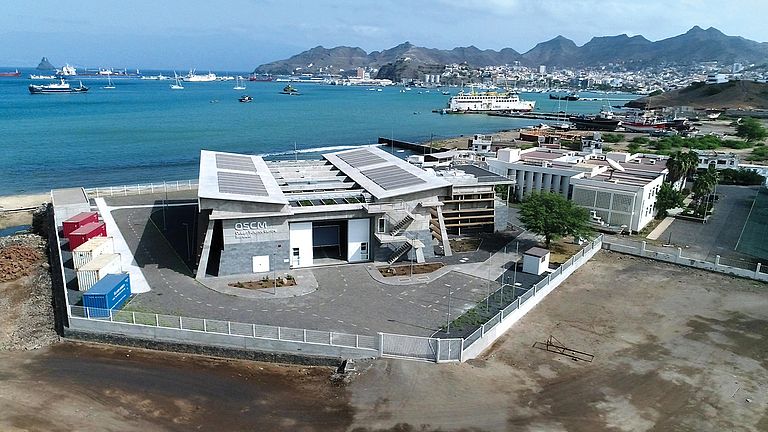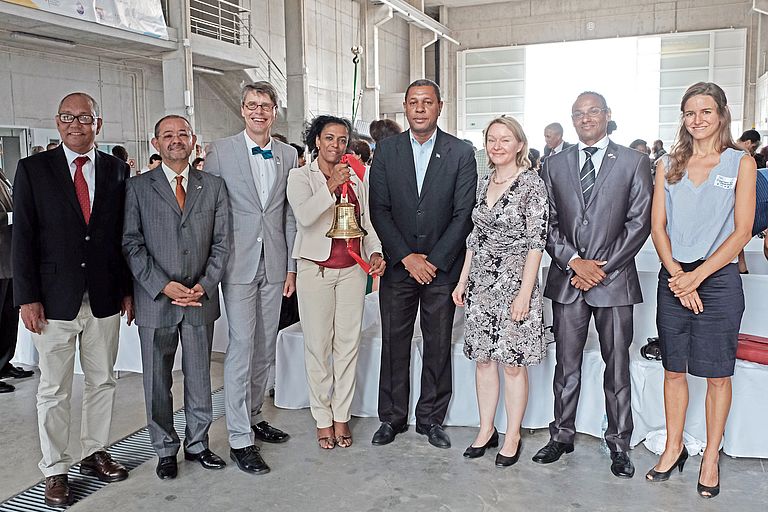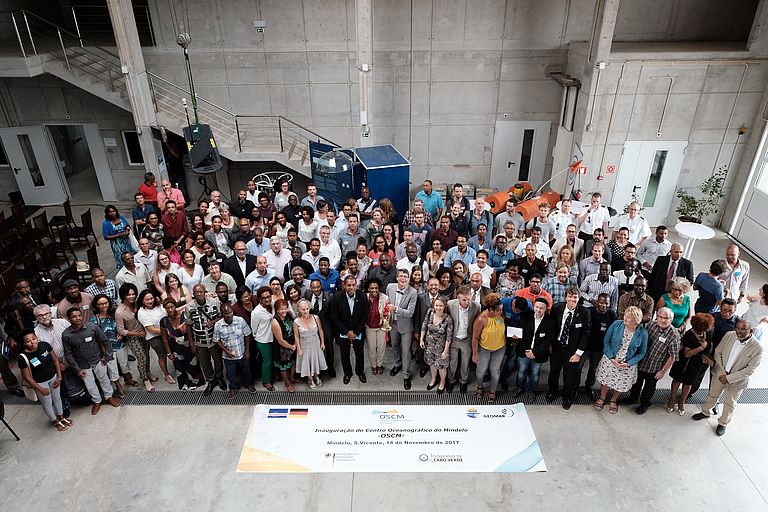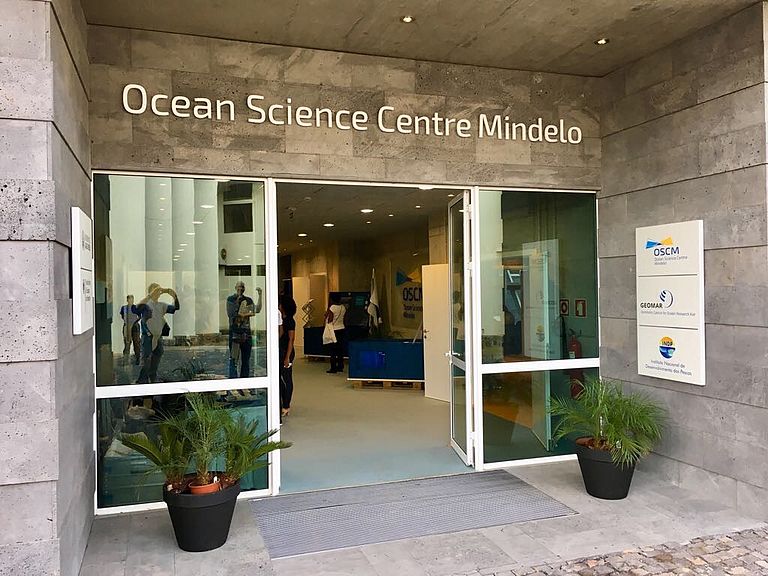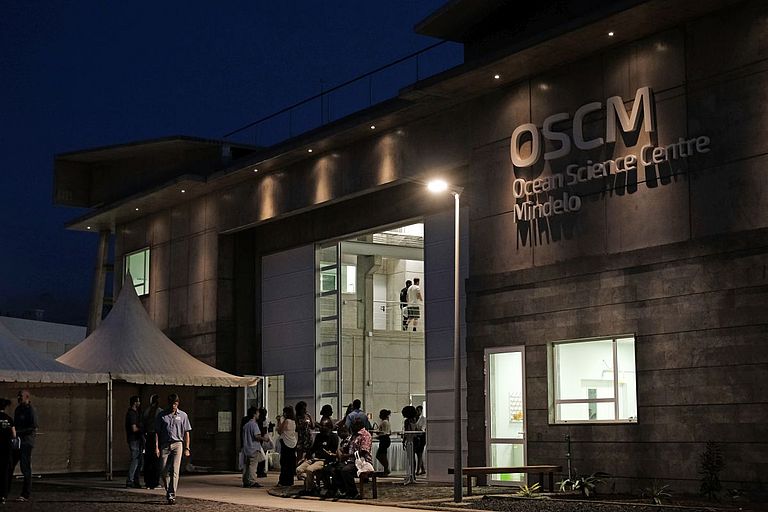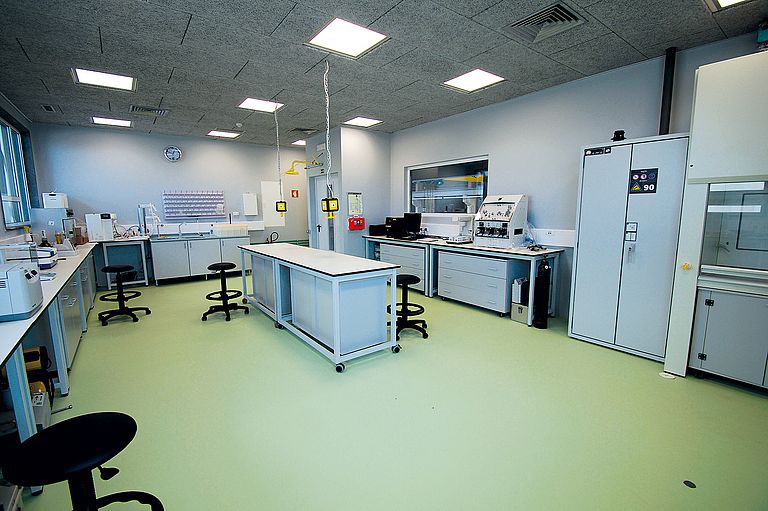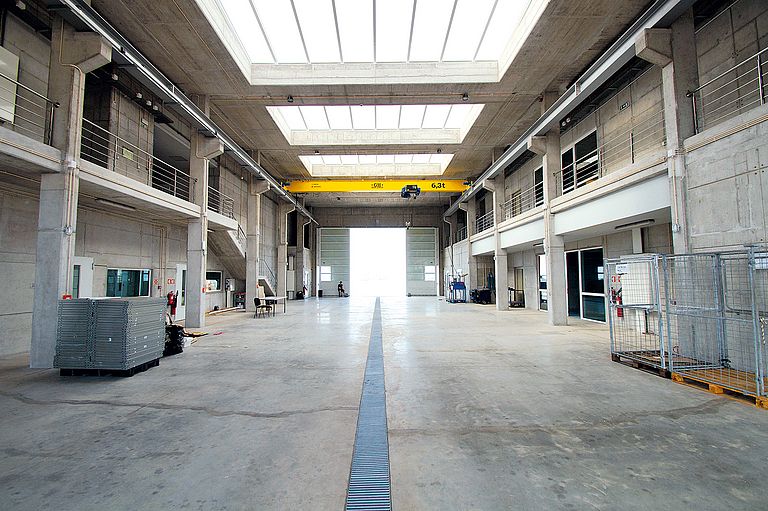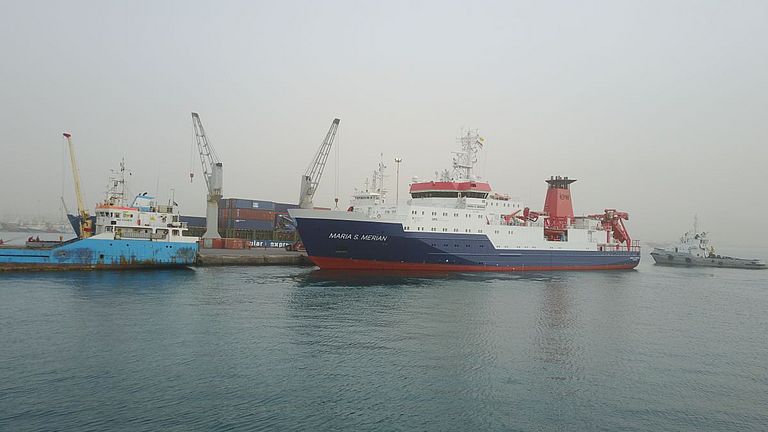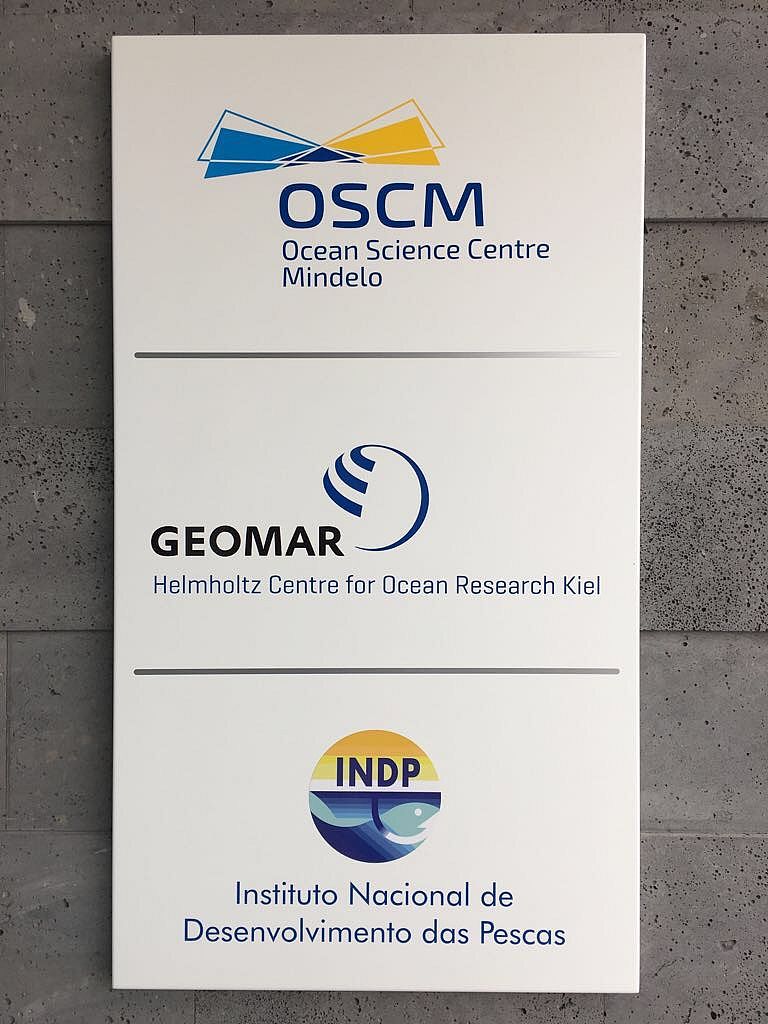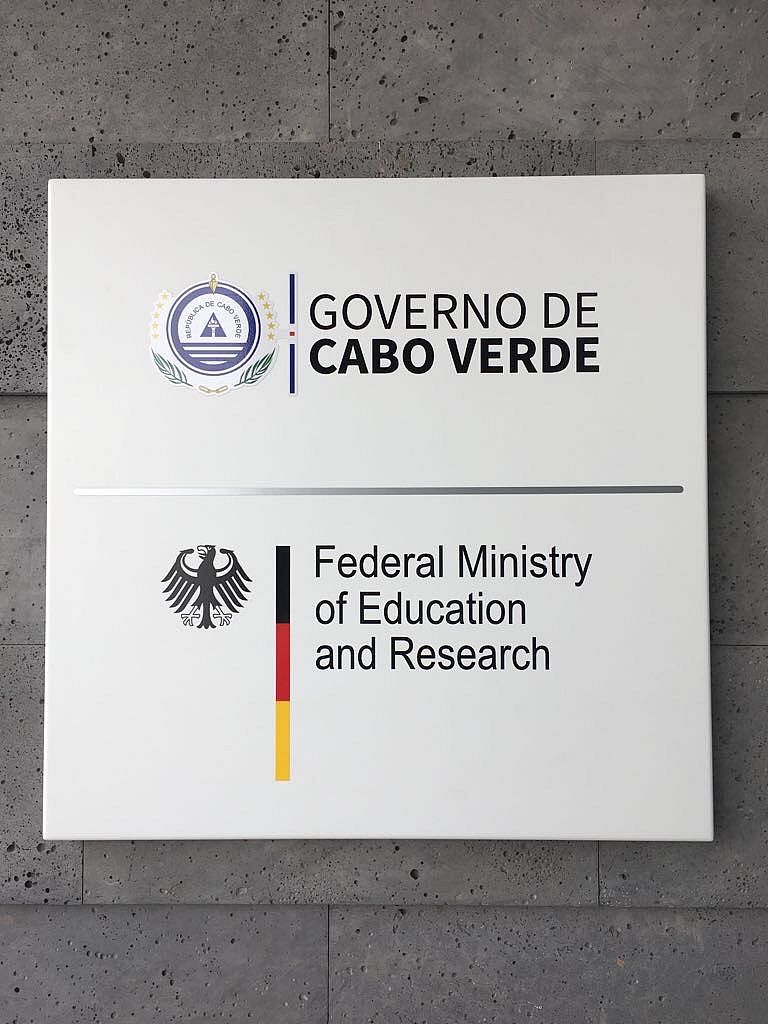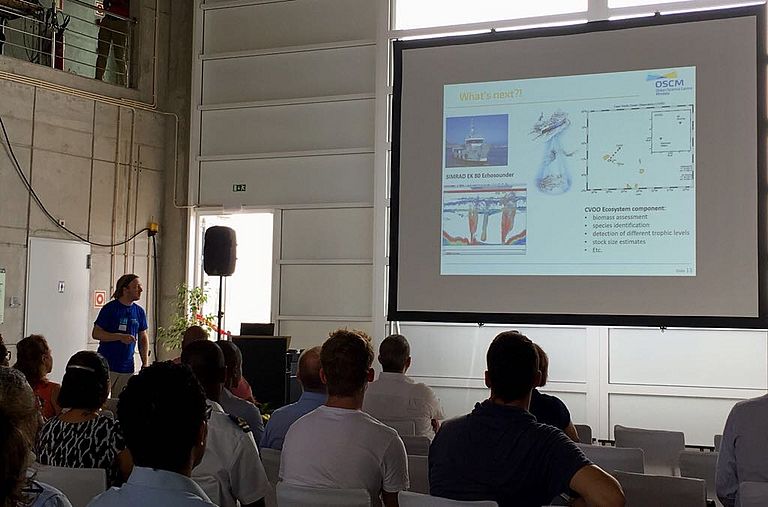Ocean Science Centre Mindelo starts scientific operation
150 scientists from Europe, Africa and the Americas meet at the OSCM
In recent years, the Cape Verde archipelago off the West African coast has become an important location for international marine research. The marine ecosystem in the tropical north-east Atlantic is one of the most productive on the planet and its fish stocks are the food base for a large number of riparian countries. What impact do oxygen minimum zones or the Saharan dust have on marine biodiversity and what effects does global climate change have on this ecosystem? These are just a few of a variety of scientific questions that can be answered in this region. Therefore, various German research institutions on and off the archipelago have been conducting long-term observations in the ocean and the atmosphere for several years. The port of Mindelo often serves as the starting or end point of numerous international ship-based expeditions.
A considerable logistical effort is often required to ensure that the equipment necessary to conduct the numerous research projects is ready for use. For this reason, five years ago, the GEOMAR Helmholtz Centre for Ocean Research Kiel, together with the National Institute for Fishery Research of Cape Verde (Instituto Nacional de Desenvolvimento das Pescas, INDP), started to plan a permanent research station in Mindelo. The research station would serve as a focal point for Cape Verdean and international working groups. After less than three years of construction, the building of the Ocean Science Centre Mindelo (OSCM) has now been completed. Today (14 November), in the presence of about 150 international scientists representatives of the Cape Verdean government have declared the OSCM fully operational.
“For Cape Verde, the OSCM is an important element to strengthen our marine research and to further develop it in the international context”, said the National Director of Maritime Economy, Dr. Carlos Évora Rocha during the ceremony. The mayor of the island of São Vicente, Dr. Augusto Neves, also congratulated.
The new building, designed by the Cape Verdian - German architect Pedro Gregório Lopes Filho, covers a scale of more than 1700 square meters. The central component is a walk-through hall where even heavy marine equipment such as deep-sea robots and autonomous underwater vehicles can be handled and maintained. In addition, the building offers several workshops, laboratories, storage facilities for equipment and samples, offices and conference rooms.
“In total GEOMAR has invested around 2.6 million Euros in this project”, Prof. Dr. Peter Herzig, Director of GEOMAR explained. The Republic of Cape Verde has contributed the remaining 300,000 euros and has provided the property. “However, for the realization of the OSCM, by far more than just financial resources were needed. In particular the coordination required great effort on both sides and worked out very well”, Professor Herzig emphasized.
“Controlling such a significant bilateral construction project across two countries was a major challenge and could only succeed in close cooperation with the users, the architect and the construction company”, emphasized Cordula Zenk, coordinator of the construction project and German-Cape Verdean cooperation at GEOMAR. “We were very fortunate to get a really motivated, powerful team together and now our commitment is to develop a prospering research culture in the OSCM”, Zenk continued.
The start of scientific operations at the OSCM is marked by an international conference on marine and atmospheric research in the West African region, attended by more than 150 scientists from 27 countries. “We want to use this event as a nucleus for new international cooperation in this region and to promote the OSCM as a place to meet for scientific exchange”, said Prof. Dr. Arne Körtzinger from GEOMAR, scientific director of the OSCM and organizer of the workshop. This goal is also supported by the exhibition „Future Ocean Dialogue“ of the Cluster of Excellence „The Future Ocean that will be shown at the OSCM during the coming months. Parts of the exhibit were specifically modified for the target region.
“I wish the Ocean Science Centre Mindelo all the best and I am convinced that it will develop into a prospering science centre in the West African region”, said Prof. Dr. Peter Herzig.
Contact:
Dr. Andreas Villwock (GEOMAR, Communication & Media), Phone: 0431 600-2802, presse@geomar.de
